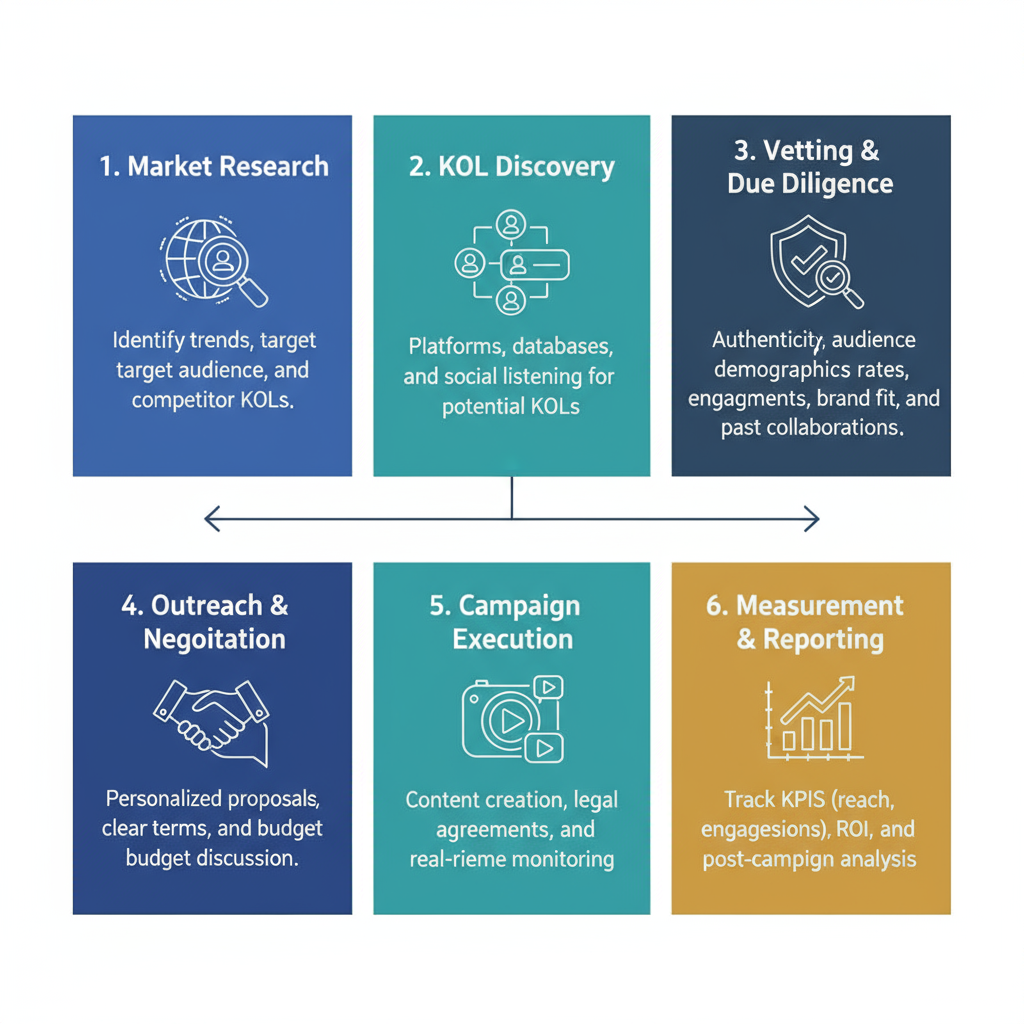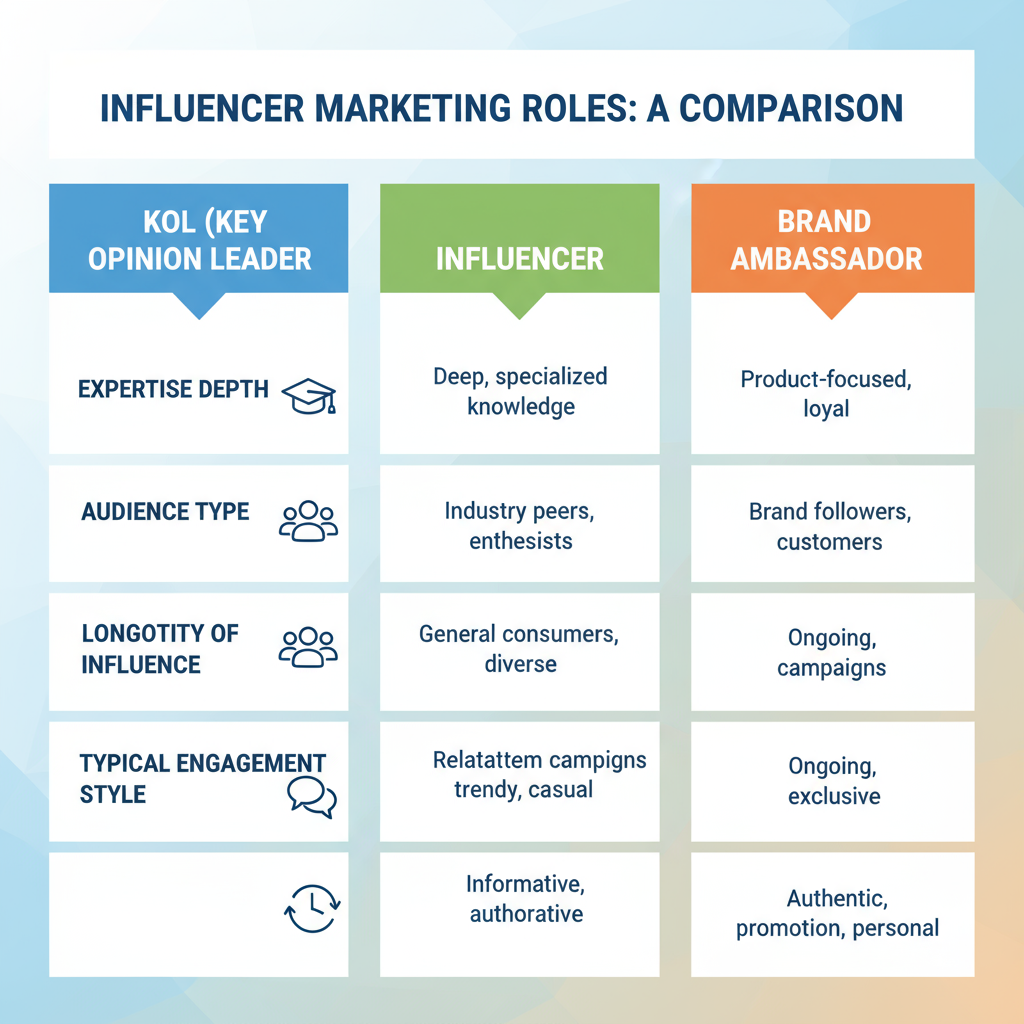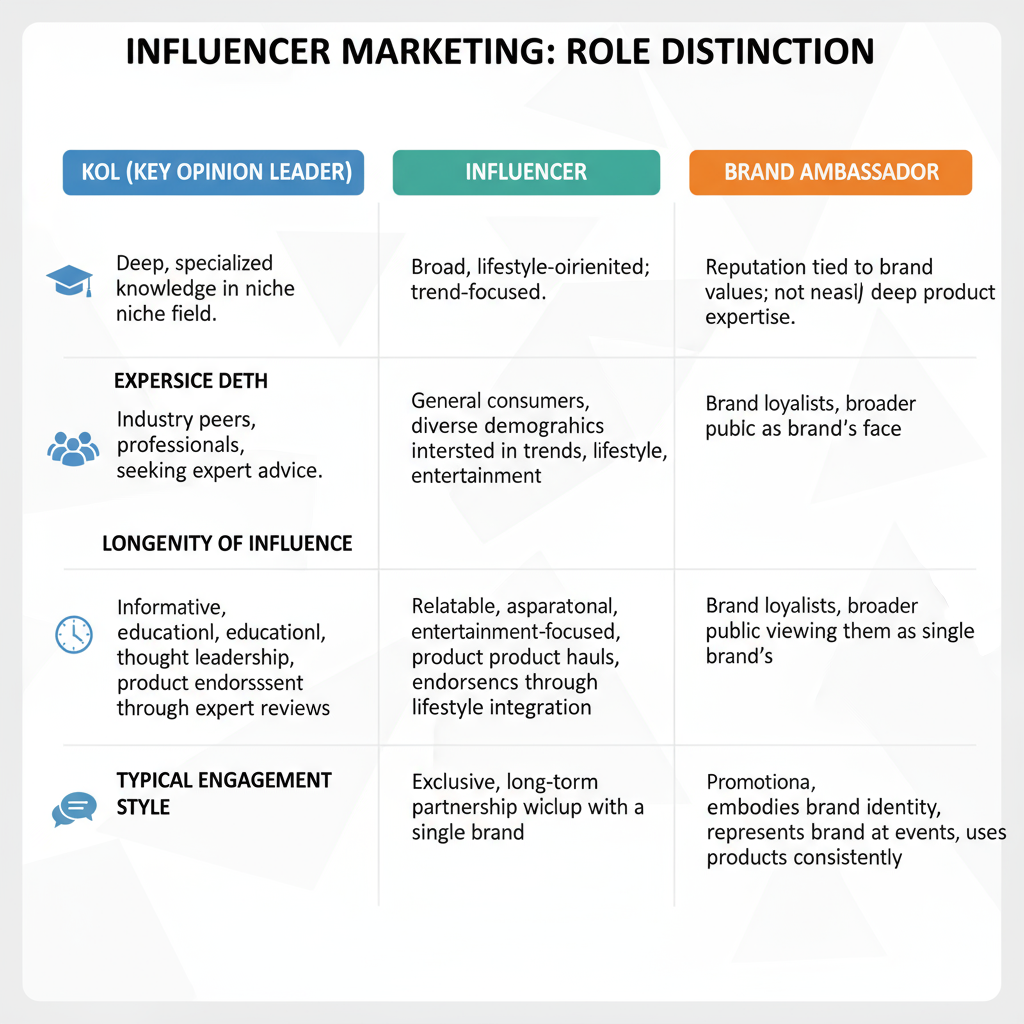Key Opinion Leader Definition and Role in Marketing Success
Learn what a key opinion leader is, how they differ from influencers, and how their expertise drives trust, trends, and marketing success.

Key Opinion Leader Definition and Role in Marketing Success
In today’s competitive digital marketplace, understanding the key opinion leader definition is essential for brands striving to build trust and credibility. Key Opinion Leaders (KOLs) are recognized experts whose authority, insight, and influence extend far beyond typical social media popularity. By leveraging their expertise, businesses can shape consumer perception, establish thought leadership, and drive meaningful engagement.
This comprehensive guide unpacks the role of KOLs, how they differ from influencers and brand ambassadors, and how to effectively collaborate with them for marketing success.

---
What is a Key Opinion Leader?
A Key Opinion Leader (KOL) is an individual widely regarded as a trusted authority and influencer within a specific industry or niche. Their influence stems from professional expertise, qualifications, and a proven track record—rather than simply having a large online following.
KOLs can be scientists, physicians, industry analysts, respected journalists, or recognized innovators whose professional opinions carry significant weight. Their recommendations can impact market trends, sway buying decisions, and inspire loyalty among niche audiences.
---
Differentiating KOLs from Influencers and Brand Ambassadors
Although KOLs, influencers, and brand ambassadors each have a role in marketing, their value propositions differ significantly.
| Role | Primary Basis of Influence | Typical Relationship with Brands |
|---|---|---|
| Key Opinion Leader (KOL) | Expertise, credentials, industry authority | Collaborates for thought leadership and credibility |
| Influencer | Social media following, entertainment, lifestyle appeal | Creates engaging content to promote awareness and trends |
| Brand Ambassador | Personal connection to brand values; ongoing advocacy | Long-term representation of a brand across multiple campaigns |
KOLs provide credibility built on knowledge and reputation; influencers excel at audience engagement through creative content; brand ambassadors reinforce consistent brand identity over time.
---
How KOLs Shape Consumer Perception and Industry Trends
Key Opinion Leaders have the unique ability to:
- Deliver Thought Leadership through research, keynote speeches, or expert contributions to publications.
- Set Trends by identifying and endorsing innovations early, influencing market adoption.
- Build Consumer Trust by lowering the risk associated with a product or service through credible recommendations.
For example, a respected nutritionist endorsing a dietary supplement can significantly boost consumer confidence and drive adoption—especially in markets where trust and transparency are vital.
---
Industries Where KOLs Have High Impact
KOLs influence nearly every sector, but their role is particularly pronounced in:
- Healthcare and Pharmaceuticals – Doctors, researchers, and specialists guide product adoption and policy acceptance.
- Technology – Analysts and engineers influence adoption of emerging software, hardware, and methodologies.
- Fashion and Beauty – Stylists, designers, and editors dictate seasonal trends.
- Finance – Economists and market commentators shape investment behaviors.
- Food and Beverage – Chefs and nutritionists inspire purchasing and consumption habits.

---
Qualities of a True Key Opinion Leader
Not all high-profile individuals qualify as KOLs. Defining traits include:
- Credibility: Validated by academic or professional achievements.
- Expertise: In-depth industry insight and specialization.
- Authenticity: Commitment to honest, transparent communications.
- Audience Trust: Strong and loyal network of followers.
- Consistency: Steady voice and reliable track record over time.
These qualities are the product of years—often decades—of dedicated professional growth.
---
How Brands Identify and Select the Right KOLs
An effective KOL partnership starts with careful integration into broader marketing strategy:
- Clarify Campaign Objectives – Define whether the goal is awareness, education, lead generation, or positioning.
- Target the Right Niche – Focus where expertise aligns with consumer decision-making.
- Ensure Messaging Alignment – A mismatch in values can undermine authenticity.
- Measure Engagement Quality – Reliability matters more than raw reach.
- Vet for Conflicts – Review the KOL’s history to avoid brand conflicts or reputational issues.
---
Best Practices for Collaborating with KOLs
To fully leverage the key opinion leader definition in practice, brands should:
- Co-Develop Authentic Content that reflects both the KOL’s and brand’s perspectives.
- Respect Professional Insights to preserve credibility.
- Engage in Long-Term Collaboration to deepen trust.
- Abide by Transparency Regulations for disclosure.
- Track and Analyze KPIs to measure ROI effectively.

---
Benefits and Risks of Working with KOLs
Like any strategic marketing channel, KOL partnerships have pros and cons.
| Benefits | Risks |
|---|---|
| High credibility and trust with target audiences | Overreliance on a single personality for brand success |
| Expert-driven content enhances brand authority | Potential controversies affecting brand reputation |
| Greater conversion rates in niche markets | Misalignment of values risking authenticity |
| Long-term partnerships strengthen brand loyalty | Difficulties in accurately measuring ROI |
---
Real-World Examples of Successful KOL Marketing
- Healthcare: A pharmaceutical firm collaborated with a top cardiologist to promote awareness of a new treatment, driving adoption among peers.
- Technology: A cloud solutions provider partnered with a Fortune 500 CTO for conference presentations, positioning itself as a market leader.
- Fashion: An ethical apparel brand worked with a sustainable fashion pioneer, influencing consumer demand for eco-friendly products.
---
Key Takeaways and Future Trends in KOL Marketing
KOLs provide a bridge between expert authority and consumer trust. As skepticism toward overt advertising intensifies, the role of KOLs will expand.
Emerging trends to watch:
- Micro-KOLs with small yet deeply engaged audiences.
- Digital Thought Leaders using webinars, podcasts, and professional networks like LinkedIn.
- Cross-Disciplinary Influence where expertise extends into related industries.
Integrating KOL strategies into brand campaigns strengthens credibility, fosters loyalty, and sets the stage for long-term success.
---
Summary: The key opinion leader definition extends beyond fame—it is rooted in authority, trust, and deep expertise. For brands, selecting the right KOL can significantly influence market positioning and consumer decisions. Organizations that strategically partner with KOLs will be better equipped to build lasting authority in their industries.
Call to Action: Ready to identify the perfect KOL for your next campaign? Start by mapping your brand values to the expertise that will resonate most with your target audience.



